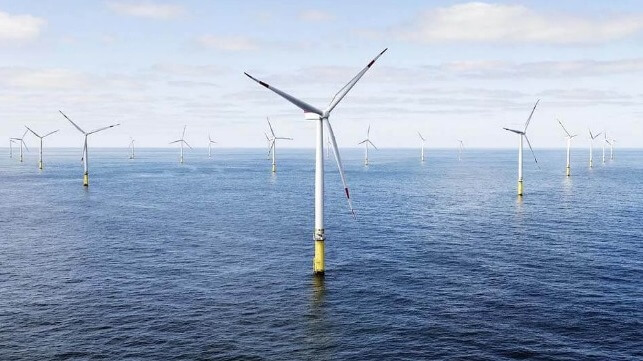Ørsted Cancels Maryland Power Agreement as it Reviews US Offshore Wind Plan

Ørsted is continuing with its efforts to realign its U.S. offshore wind portfolio while also taking steps to emphasize that it remains committed to the market and sees future opportunities. The U.S. division of the Danish offshore developer however announced that it has walked away from existing power agreements in New York and now Maryland positioning the projects for future offtake opportunities.
Plans for Skipjack Wind, a two-phase project with the potential for 966 MW of energy, were setback as the company reported it will withdraw from existing power agreements with the Maryland Public Service Commission agreed to in 2020 and 2021. The company said it determined that the payment amounts outlined in the orders “are no longer commercially viable,” while again citing market conditions, including inflation, high interest rates, and supply chain constraints.
According to Ørsted, the decision to withdraw from the orders with Maryland will “reposition Skipjack Wind for future offtake opportunities.” It is unclear then they might be able to rebid these projects.
Unlike its decision in November 2023 to end two New Jersey offshore wind projects, Ørsted intends to continue advancing development and permitting for the two phases of Skipjack. The company is submitting an updated Construction and Operations Plan for the wind farms to the Bureau of Ocean Energy Management (BOEM) for review.
The plan calls for Maryland’s first offshore wind farm to be built in two phases. The smaller, first phase was agreed upon in 2020 and would be located in an area approximately 13 to 21 miles off the Delmarva Peninsula. It would have a capacity for 120 MW while the second phase which was part of Maryland’s second solicitation in 2021 would have a capacity for 846 MW. The company in its plans said the project would require 69 turbine positions. They were planning on using the GE Haliade 14.7 MW turbine at the second site and the smaller 12 MW at the first site. They would stand approximately 550 feet from the waterline to the nacelle hub and the blades are approximately 300 feet in length.
“Today’s announcement affirms our commitment to developing value-creating projects and represents an opportunity to reposition Skipjack Wind, located in a strategically valuable federal lease area and with a state that is highly supportive of offshore wind, for future offtake opportunities,” said David Hardy, Group Executive Vice President and CEO Americas at Ørsted. “As we explore the best path forward for Skipjack Wind, we anticipate several opportunities and will evaluate each as it becomes available. We will continue to advance Skipjack Wind’s development milestones, including its Construction and Operations Plan.”
At the same time, they confirmed that yesterday they entered a new bid into the New York State solicitation for the Sunrise Wind project to be located east of Long Island. Ørsted had reported if the rebid is successful, it would take full control of the project acquiring the half interest currently held by Eversource.
The companies emphasized that Sunrise Wind is the most developed proposal in New York’s pipeline and if they are successful in resetting the power agreement would be ready to move forward with construction on the project which would provide 924 MW. Calling it “ready to build,” they said Sunrise Wind is expected to be completed in 2026.
The rebid however is just one of several proposals submitted to New York yesterday with expectations that it would be a very competitive round. BP and Equinor reported yesterday that they were separating their interests in Beacon Wind and Empire Wind, two other projects in New York that are looking to reset their offtake agreements. Equinor confirmed it had submitted a proposal for Empire Wind 1 in the solicitation.

that matters most
Get the latest maritime news delivered to your inbox daily.
RWE and National Grid Ventures also reported that their joint venture Community Offshore Wind had submitted a proposal. It is for the second phase of the wind farm which would have a capacity of 1.3 GW. The first phase was selected in the previous third round solicitation. Combined the project has the potential for 3 GW the companies said is expected to be in operation by the end of 2030.
New York has promised a quick decision as it looks to expedite the next round of offshore wind power development.
